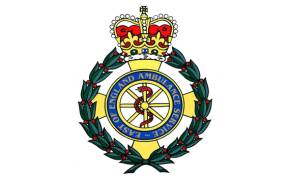Date:
23 April 2024
Page URL:
https://ntk.eastamb.nhs.uk/news/newly-qualified-paramedic-clinical-guidelines.htm?pr=
*Updated* Newly qualified paramedics: clinical guidelines

Updated 18th April, 2017:
Temporary change to NQP clinical guidelines
As part of the clinical support guidelines we released for NQPs, which you can read here, we originally included the need to complete a national early warning score (NEWS) for every patient.
The national early warning score (NEWS) is a safety-netting tool that helps to track a patient’s clinical condition, and flag any potential or actual deterioration. It’s already used nationally across many hospital and ambulance trusts, with great success, so we’ve taken the decision to roll NEWS out to all clinical staff so that everyone can benefit from it as a patient-safety tool.
As such, we don’t expect NQPs to use NEWS until it’s been rolled out to everyone, which will likely be next month. Included in the launch will be guidance and information on NEWS, how it works, and how we expect staff to use it.
However it remains compulsory, from today (18th April), for NQPs to seek clinical advice if they’re considering discharge from scene when:
- deviation from clinical guidance or protocols is required
- the patient is in a high risk group, including: babies and young children; the elderly; those who have had recent contact with a healthcare professional; maternity patients; and mental health patients.
You can read the full clinical guidelines, with specific instruction for these patient groups, here.
Until NEWS is formally launched, we ask our NQPs to consider seeking clinical advice in any scenario where they’re unsure of whether to discharge a patient at scene or convey to help support decision-making.
Please contact bandingagreement@eastamb.nhs.uk with any queries.
Updated 3rd April, 2017:
Thank you for your feedback on the documentation released on 1st April.
A number of you have kindly been in touch around Flying Start NHS, which we originally detailed would need to be completed.
We have been looking modify the registration process to take paramedics and NHS trusts outside Scotland into account, but this will now take longer than originally planned.
We will therefore be giving further thought to this element to support the completion of your portfolio. We will provide this as soon as possible, but as this stage we would ask that no registrations are undertaken at present.
The documents released have been updated accordingly.
We hope this is helpful, but if you have any questions please don’t hesitate to email bandingagreement@eastamb.nhs.uk.
Released 1st April, 2017:
The newly qualified paramedic (NQP) programme is designed to support the transition to practice for those registered and employed as a paramedic from the 1st September, 2016.
The national NQP programme comes into effect from today (1st April), with adoption by the Trust on 18th April to make sure NQPs are fully prepared and briefed ahead of the changes.
Please make sure to read the briefing released in February on the programme, as well as the newly released NQP clinical guidance, which you can download here).
As a reminder, the EEAST programme entails:
- completion of a portfolio of consolidation that has been agreed as a part of the national negotiations
- undertaking formal practice educator development from month nine
- undertaking an initial 150 hours of supported practice, which will be planned over a 12-week period
- attending clinical supervision sessions (one every six months) to review progress
- being assigned a preceptor, in the form of an experienced paramedic or mentor
- completing an induction checklist (attached to this email, and available to download here)
- working to specific clinical guidelines (attached to this email, and available to download here).
Key points:
- All NQPs should be provided with a named preceptor in the form of a mentor or experienced paramedic
- For the first six months, NQPs should not be planned to work solo on a rapid response vehicle (RRV)
- Any NQPs employed between 1st September, 2016, and 1st April, 2017, will be individually considered in accreditation of learning, focusing on RRV solo working; this can also take into account other areas of experience
- National guidance on portfolio completion and the ‘fast track’ process are expected by the end of April; this will be shared when available.
For further information or if you have any questions, please contact your line manager or email bandingagreement@eastamb.nhs.uk.
Published 1st April, 2017; last updated 18th April, 2017
